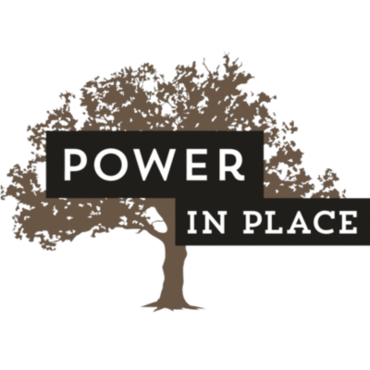Graphic by Sorbetto via Getty Images.
BY: CAROLINE PITMAN, SUMMER 2020 COLLABORATOR AT POWER IN PLACE
Times of crisis often amplify existing inequalities within society. From the disproportionate amount of black Americans dying from COVID-19 to the daily inequalities faced by women, COVID-19 is not a crisis that affects all equally. While the hope of a vaccine is on the horizon, the pandemic shows no sign of stopping within the United States and, a vaccine, while essential, will not solve rampant gender inequality.
Unfortunately, the devastating economic and societal consequences of COVID-19 are more likely to affect women. For women, the unpaid care burden is simply a part of life. Even during a pandemic, women are more likely to shoulder the majority of unpaid work. This essential work, from childcare to household tasks, is undervalued and prevalent throughout the globe. With the mass closing of childcare facilities and schools, women with children are at a particular disadvantage. In a recent New York Times pole, "Seventy percent of women say they’re fully or mostly responsible for housework during lockdown, and 66 percent say so for child care." One exacerbated role brought on by the pandemic is the role of teacher. Long term closures have moved classrooms online, and parents, who are more likely to be women, assume the role of teacher in addition to their usual responsibilities. [1]
According to the United Nations, women do three times the amount of unpaid housework compared to men. [2] The pandemic has increased the amount of unpaid work, including increased cleaning. From longer waits at the grocery store (a task more likely to be done by women) to food shortages, the daily tasks, primarily done by women, are taking longer.
The problem of the unpaid care burden and the devaluation of this burden goes across cultures and countries. Despite advancement in women’s rights, this burden both hinders economic growth and gender equality on a larger scale. With women assuming the majority of the unpaid care burden at home, this leaves less time for formal employment.
Women are more likely to be underpaid and more likely to work in the informal economy. Jobs, such as hotel cleaners or child care professionals, are often paid under the table or income is not reported correctly. In times of pandemic and mass unemployment, this lack of formal work is a detriment to women who try to access government assistance. The lack of regularity in employment poses a serious problem for women, as they on average, have less money saved than men. [3]
In terms of formal employment, women are more likely to work in the health sector according to The World Health Organization. Globally, women make up 70% of the health sector. [4]
This creates a situation where a women’s care burden is heightened as a result of the pandemic. Both at home and at work, the demands are greater. This translates to often longer hours at one’s place of formal employment and a heightened burden at home.
In the United States, the pandemic is not over and is still spreading throughout the globe. The promise of a vaccine will hopefully diminish the effect of the deadly disease; however, until then, women will continue to be at a disadvantage. Despite the urgency of the pandemic, women’s rights and the fight for equality must remain at the forefront of public policy decisions. In an unequal world, we must account for these inequalities, particularly in times of crisis.
References
[1] Cain Miller, Claire. “Nearly Half of Men Say They Do Most of the Home Schooling. 3 Percent of Women Agree.” The New York Times, 6 May, 2020.https://www.nytimes.com/2020/05/06/upshot/pandemic-chores-homeschooling-gender.html
[2] Nesbit-Ahmed, Zahrah and Subrahmanian, Ramya. “Caring in the time of COVID-19: Gender, unpaid care work and social protection.” UNICEF, 23 April, 2020. https://blogs.unicef.org/evidence-for-action/caring-in-the-time-of-covid-19-gender-unpaid-care-work-and-social-protection/
[3] Adamczyk, Alicia. “Women lag behind men in retirement savings—here are 3 things they can do to catch up.” CNBC, 18 November 2019. https://www.cnbc.com/2019/11/18/women-are-still-lagging-behind-men-when-it-comes-to-saving.html
[4] Boniol et al. “Gender equity in the health workforce: Analysis of 104 countries.” World Health Organization, March 2019. https://apps.who.int/iris/bitstream/handle/10665/311314/WHO-HIS-HWF-Gender-WP1-2019.1-eng.pdf?sequence=1&isAllowed=y
Caroline Pitman is a student at Catholic University in Washington, D.C, where she studies Politics, History, and Theology. She is passionate about increasing the number of women in elected offices and in government positions and plans to pursue a career in law. In her free time, she loves to read historical non-fiction books, spend time with her yellow lab, and explore Washington, D.C.






